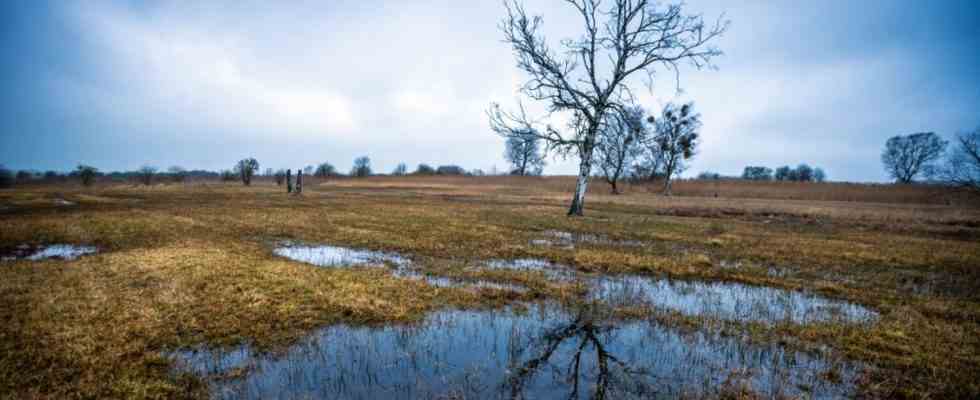If Steffi Lemke wants to see the future, she laces up her hiking boots. Then she drives to where the water reclaims its place because it is no longer being prevented: to the moor. “Provision for the climate crisis” is being done there, praises the Environment Minister. Peatlands store water and absorb greenhouse gases. “Natural climate protection,” she calls it.
Dressed in normal office clothes, Lemke had her “Action Program for Natural Climate Protection” approved by the Federal Cabinet on Wednesday. An 80-page concept with dozens of individual measures, backed with four billion euros by 2026. The federal government has never invested so much money in nature conservation, says the Green politician – even if that could only be a start. Moors and natural forests could make a significant contribution to Germany reaching its goal of being CO₂-neutral by 2045.
When it comes to climate protection, the public debate usually revolves around other topics: How can emissions of greenhouse gases in traffic be reduced, will soon all oil or gas heating in Germany’s houses be scrapped? The fact that dealing with nature itself also plays an important role is shown above all by the moors: if they are drained, for example to gain arable land or to pave a road, they release huge amounts of carbon dioxide. More than 50 million tons are released into the atmosphere in Germany every year, which is seven percent of the total emissions. Conversely, if dry moors – and that is the vast majority of them – become waterlogged again, they store carbon. This also applies to the renaturation of forests, especially riparian forests along rivers.
In addition, the federal government wants to achieve two other goals with its action program: ecosystems are to be preserved or restored, also in order to slow down the rapid loss of species. And they should also mitigate the consequences of the climate crisis: damp forests burn less often, natural river valleys can absorb flooding, cities with many trees are cooler and healthier for their residents.
For Lemke, the program is not just one of her most important projects. It is also her most important approach to the topic of climate protection. Because the traffic light coalition has shifted responsibility for this from the Ministry of the Environment to the Departments of Foreign Affairs and Economics. Although they are also led by the Greens, Lemke’s own creative freedom is limited as a result. With the new action program, she now has four billion euros to distribute. “It’s money extremely well invested,” she says, citing an EU study that says every euro in this area pays for itself eightfold.
As a concrete first step, she cites funding programs, for example, for the climate-friendly use of land in rural communities as well as for the unsealing of land or their natural transformation in the cities. And she will set up a “competence center” by the summer, Lemke announces, where landowners in particular can find out about funding opportunities.
The environment minister also received criticism from environmentalists for the water strategy
Some of them are already resisting. Lemke’s program offers “apart from the use of moors, no meaningful measures or only those whose climate value is questionable,” criticizes Joachim Rukwied, President of the German Farmers’ Association. “The action program must also offer business models for natural climate protection for us farmers.” Rukwied demands that the action program must be implemented together with the farmers, not against them – otherwise their competitiveness will suffer. Lemke, on the other hand, calls her funding guideline for rural areas an “outstretched hand for farmers”.
Of course, conflicts over the use of scarce resources are a constant feature of Lemke’s work: after the presentation of her national water strategy two weeks ago, environmentalists accused her of not giving the population clean drinking water absolute priority over the interests of industry and agriculture.
And Lemke doesn’t just have a problem with the farmers. On Tuesday, the coalition committee decided that 144 future motorway expansions should be in the “overriding public interest”, meaning that environmental protection issues should play a lesser role in their planning in the future. The Environment Minister does not like that. This path is wrong, says Lemke, but in this “extremely small and limited scope” she considers it “manageable”. Finally, road construction also seals the moor areas that Lemke would so much like to preserve. In response to the coalition committee and the action program, the German Environmental Aid is now calling for renaturation to be accelerated and legal hurdles to be removed.

